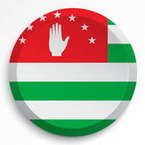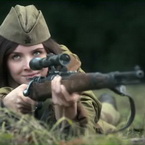Kompolka
Posts: 108
Joined: 12/7/2015
Status: offline

|
Alas, but Munich Agreement is a history. It is not an ideology.
The Munich Agreement was signed, and this provoked Second World War...

Was there any alternative to the Munich Agreement, except for the war that Germany was ready to unleash against Czechoslovakia? Yes, there was. In December 1933, less than a year after Hitler came to power, the government of the Soviet Union and France put forward a draft treaty on collective European security, also known as the Eastern Pact, and aimed primarily at repelling possible aggression from Hitler’s Germany nurtured by the money of German and American corporations.
On 25 September 1938, in response to Germany’s military preparations President of Czechoslovakia Beneš declared a general mobilization. Czechoslovakia was preparing for a defensive war to defend its independence. But no allies wanted to support it, except the Soviet Union. However, Poland, the UK and France were against the Soviet aid. On 23 May 1938, at the beginning of the Sudeten crisis, the Polish ambassador in France told the US ambassador in Paris Bullitt that Poland would immediately declare war on the Soviet Union if it tries to send its troops to Czechoslovakia through Polish territory. And Poland, as is known, has considered itself Germany’s ally and waited for an opportunity to start its campaign to the East against Russia.
On 19 September 1938, after the decision to transfer the Sudeten region to Germany, President of Czechoslovakia Beneš asked Joseph Stalin for support. However, on September 20–21 the British and French ambassadors to Czechoslovakia stated that “if the Czechs unite with the Russians the war could become a crusade against the Bolsheviks. Then it will be very difficult for the governments of Britain and France to stand aside.” It would be interesting to ask the question: On whose side?
In 1938 Czechoslovak army consisted of 1,280 thousand people and had the best weapons in comparison to other countries in Eastern Europe. Suffice to say that the Czech rifles, machine guns and tanks had been used by the Wehrmacht for a long time. Nine German infantry divisions and five tank divisions by 1941 were armed with these weapons. Czech tank LT-38 that did not enter service until 1938 was adopted by the Germans as PzKpfw 38 (t), and later the famous light tank destroyer Hetzer was based on its chassis. According to some military historians, the Czechoslovak army could well confront the Wehrmacht alone with its then-armament. This, however, is doubtful, as the German Air Force was eager to test their latest dive bombers Junkers Ju-87 in the sky over Czechoslovakia and the Czechs did not have such machines. The President Beneš came to terms with it. After all, if Soviet troops helped Czechoslovakia despite the protests of England, France and Poland, the world war would be inevitable.
Thus, the Western “allies” saved Czechoslovakia from the Soviet aid. The troops that advanced to the western borders of Czechoslovakia were at the eastern borders of the country until 25 October 1938, and were later withdrawn.
What would happened if the Eastern Pact was signed? According to the German war criminals at Nuremberg, the war would not take place. And even if Czechoslovakia confronted Germany by itself, it would not be the world war, and perhaps, according to some military historians, it would have ended not in favor of Germany. And with the support of the allies – the Soviet Union and France – it would be even more likely. The world would not see the Second World War.
Source: https://penzanews.ru/en/analysis/54396-2013
|
 Printable Version
Printable Version















 New Messages
New Messages No New Messages
No New Messages Hot Topic w/ New Messages
Hot Topic w/ New Messages Hot Topic w/o New Messages
Hot Topic w/o New Messages Locked w/ New Messages
Locked w/ New Messages Locked w/o New Messages
Locked w/o New Messages Post New Thread
Post New Thread